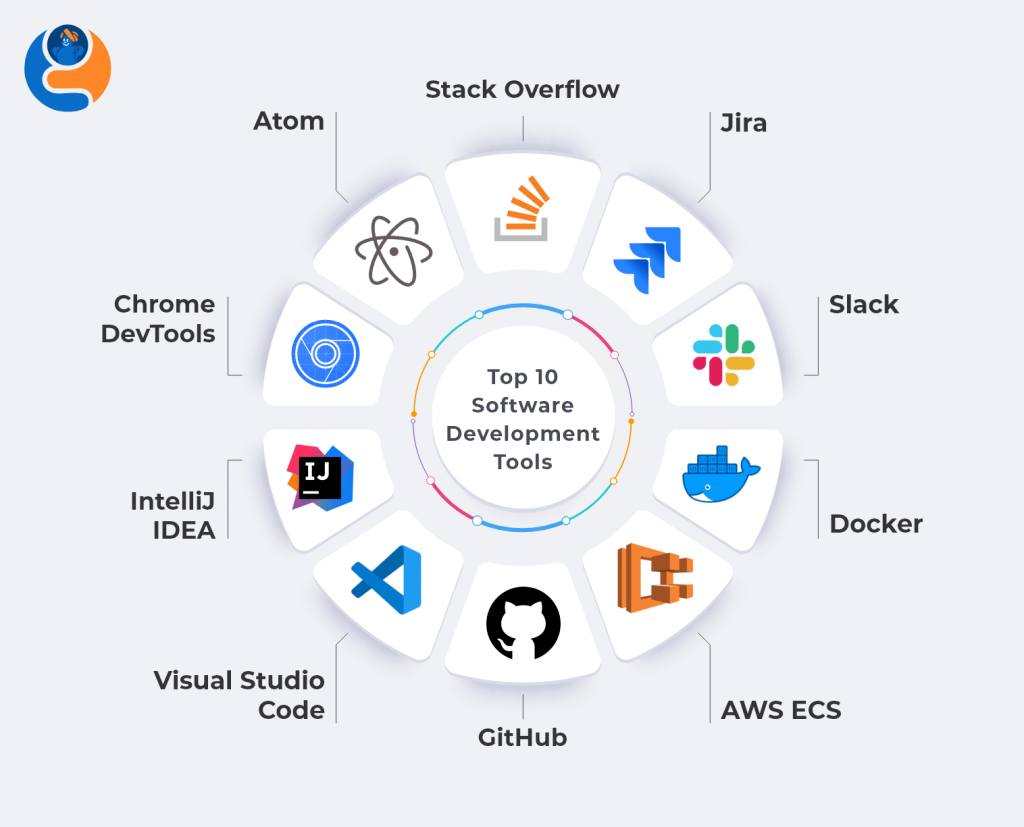Unlock Your Potential: Powering Up With Essential Software Tools Used
Software Tools Used: A Comprehensive Guide
Greetings, Readers!
Welcome to our comprehensive guide on software tools used in today’s digital landscape. In this article, we will explore the various software tools that are widely utilized by individuals and organizations to enhance productivity, streamline processes, and achieve their goals. Whether you are a business professional, an entrepreneur, or simply someone interested in technology, this guide will provide valuable insights into the world of software tools. Let’s dive in!
2 Picture Gallery: Unlock Your Potential: Powering Up With Essential Software Tools Used


Introduction
In today’s fast-paced digital era, software tools have become an integral part of our personal and professional lives. From project management to data analysis, there is a wide range of software tools available to cater to diverse needs. These tools offer advanced functionalities, automation capabilities, and user-friendly interfaces, allowing users to accomplish tasks efficiently and effectively.
Software tools have revolutionized the way we work, communicate, and collaborate. They have significantly simplified complex processes, eliminated manual errors, and accelerated decision-making. Whether you are a freelancer managing multiple projects, a marketer analyzing customer data, or an IT professional troubleshooting technical issues, software tools can greatly enhance your productivity and performance.
Now, let’s delve into the details of the top software tools used across various industries and sectors.
1. What are Software Tools Used?

Image Source: simform.com
Software tools are computer programs or applications designed to perform specific tasks or functions. They are created to address the needs and challenges faced by individuals and organizations in their day-to-day operations. These tools can range from simple applications for basic tasks to complex software suites with advanced capabilities.
By utilizing software tools, users can automate repetitive tasks, manage data efficiently, analyze information effectively, and collaborate seamlessly. They enable users to save time, reduce errors, and make informed decisions based on accurate insights. From project management tools to graphic design software, there is a vast array of options available to cater to different requirements.
1.1 Project Management Software
Project management software tools are designed to streamline and optimize project planning, execution, and monitoring. These tools provide features such as task management, team collaboration, resource allocation, and progress tracking. They help project managers and teams stay organized, meet deadlines, and achieve project objectives.
Some popular project management software tools include Trello, Asana, Basecamp, and Jira. These tools enable users to create project boards, assign tasks, set deadlines, track progress, and communicate with team members. They facilitate efficient project planning, seamless collaboration, and effective task management.
1.2 Data Analysis Tools
Data analysis tools are essential for extracting valuable insights from large datasets. These tools enable users to analyze, interpret, and visualize data to make informed decisions. They offer various functionalities such as data cleansing, data modeling, statistical analysis, and data visualization.
Image Source: licdn.com
Popular data analysis tools include Microsoft Excel, Tableau, Python, and R. These tools provide users with the ability to manipulate data, perform complex calculations, create interactive dashboards, and generate insightful reports. They empower individuals and organizations to derive actionable intelligence from raw data.
1.3 Communication and Collaboration Tools
Communication and collaboration tools facilitate seamless interaction and collaboration among individuals and teams, regardless of their geographical locations. These tools offer features such as instant messaging, video conferencing, file sharing, and virtual whiteboarding.
Well-known communication and collaboration tools include Slack, Microsoft Teams, Zoom, and Google Workspace. These tools enable users to communicate in real-time, share files, conduct virtual meetings, and collaborate on projects. They enhance remote teamwork, foster efficient communication, and enable effective collaboration.
1.4 Design and Creativity Tools
Design and creativity tools are widely utilized by graphic designers, artists, and marketers to create visually appealing content. These tools provide features for graphic design, image editing, video editing, and animation.
Popular design and creativity tools include Adobe Photoshop, Adobe Illustrator, Canva, and Final Cut Pro. These tools offer a wide range of creative options, intuitive interfaces, and advanced editing capabilities. They empower users to bring their ideas to life and create stunning visual content.
1.5 Development Tools

Image Source: webcodegenie.com
Development tools are used by software developers and programmers to build, debug, and maintain software applications. These tools include integrated development environments (IDEs), code editors, version control systems, and debugging tools.
Commonly used development tools include Visual Studio Code, IntelliJ IDEA, Git, and Xcode. These tools provide developers with features such as code suggestions, syntax highlighting, code debugging, and collaboration capabilities. They enhance the development process, improve code quality, and facilitate efficient debugging.
1.6 Cybersecurity Tools
Cybersecurity tools are crucial for protecting digital assets, networks, and sensitive information from unauthorized access and cyber threats. These tools include antivirus software, firewalls, vulnerability scanners, and encryption tools.
Well-known cybersecurity tools include Norton Antivirus, McAfee, Wireshark, and VeraCrypt. These tools ensure the security and integrity of digital assets, detect and prevent malware infections, and safeguard sensitive data. They play a vital role in maintaining a secure digital environment.
1.7 Marketing and SEO Tools
Marketing and SEO tools are utilized by marketers and website owners to optimize their online presence, drive traffic, and improve search engine rankings. These tools include keyword research tools, SEO analytics platforms, content management systems, and social media management tools.
Popular marketing and SEO tools include Google Analytics, SEMrush, WordPress, and Hootsuite. These tools enable marketers to track website performance, analyze user behavior, optimize content for search engines, and manage social media campaigns. They empower businesses to enhance their online visibility and reach their target audience effectively.
2. Who Uses Software Tools?
Software tools are used by individuals and organizations across various industries and sectors. They are not limited to specific roles or professions but can be beneficial to anyone seeking to improve productivity, streamline processes, and achieve their goals.
Business professionals, entrepreneurs, project managers, software developers, data analysts, marketers, designers, and IT professionals are among the primary users of software tools. These individuals leverage software tools to simplify complex tasks, automate repetitive processes, enhance collaboration, and make data-driven decisions.
Small businesses, startups, medium-sized enterprises, and large corporations can all benefit from utilizing software tools tailored to their specific requirements. Additionally, educational institutions, government agencies, and non-profit organizations also utilize software tools to streamline operations and improve efficiency.
3. When Should You Use Software Tools?
Software tools can be utilized in various scenarios and situations. They can be employed when:
You have repetitive tasks that can be automated
You need to manage and organize projects effectively
You want to analyze large datasets and derive insights
You require seamless communication and collaboration
You aim to enhance creativity and design capabilities
You are developing software applications and need development tools
You want to ensure the security and integrity of digital assets
You aim to optimize marketing efforts and improve online visibility
By identifying the specific needs and challenges in your personal or professional life, you can determine when to leverage software tools to maximize efficiency and achieve desired outcomes.
4. Where Can You Find Software Tools?
Software tools can be found through various channels, including:
Official websites of software developers and vendors
Software marketplaces and app stores
Online platforms and communities
Recommendations from colleagues, friends, and industry experts
Publications and reviews on technology websites and blogs
When searching for software tools, it is essential to consider factors such as functionality, user interface, pricing models, customer reviews, and customer support. Conducting thorough research and exploring different options will help you find the most suitable tools for your specific needs.
5. Why Should You Use Software Tools?
There are several reasons why you should consider using software tools in your personal and professional life:
Enhanced productivity: Software tools automate tasks, streamline processes, and save time, allowing you to accomplish more in less time.
Improved accuracy: By eliminating manual errors, software tools ensure data accuracy and provide reliable results.
Better decision-making: With access to insightful analytics and data visualization, software tools enable informed decision-making based on accurate information.
Efficient collaboration: Communication and collaboration tools facilitate seamless teamwork, regardless of geographical locations, improving productivity and collaboration.
Enhanced creativity: Design and creativity tools provide a wide range of options to unleash your creative potential and create visually stunning content.
Streamlined processes: Project management tools optimize project planning, execution, and monitoring, leading to streamlined processes and successful project outcomes.
Security and protection: Cybersecurity tools safeguard digital assets, networks, and sensitive information, protecting against unauthorized access and cyber threats.
Competitive advantage: Utilizing software tools can give you a competitive edge by optimizing marketing efforts, improving search engine rankings, and staying ahead of the competition.
By leveraging the power of software tools, you can enhance your efficiency, accuracy, collaboration, creativity, and overall success in both personal and professional endeavors.
6. How Can You Make the Most of Software Tools?
To make the most of software tools, consider the following tips:
Understand your needs: Identify your specific requirements to choose software tools that align with your goals and objectives.
Explore functionalities: Thoroughly explore the features and functionalities of software tools to ensure they meet your needs effectively.
Invest in training: Invest time in learning and training to maximize your proficiency and leverage the full potential of software tools.
Stay updated: Keep up with the latest updates and advancements in software tools to benefit from new features and improvements.
Seek support: Utilize resources such as user guides, tutorials, and customer support to address any challenges or queries you may have.
By following these guidelines, you can make the most of software tools and unlock their full potential in your personal and professional endeavors.
Advantages and Disadvantages of Software Tools
Advantages
1. Increased efficiency and productivity: Software tools automate tasks and streamline processes, enabling users to accomplish more in less time.
2. Improved accuracy and reliability: By eliminating manual errors, software tools ensure data accuracy and provide reliable results.
3. Enhanced collaboration and communication: Communication and collaboration tools facilitate seamless teamwork and efficient communication, regardless of geographical locations.
4. Access to insightful analytics and data visualization: Data analysis tools provide valuable insights and visual representations of data, enabling informed decision-making.
5. Simplified project management: Project management tools optimize project planning, execution, and monitoring, leading to successful project outcomes.
Disadvantages
1. Learning curve: Some software tools may have a steep learning curve, requiring time and effort to master.
2. Cost: Certain software tools may come with a hefty price tag, especially those with advanced functionalities and enterprise-grade features.
3. Compatibility issues: Incompatibility with existing systems or software may pose challenges when integrating new software tools into the workflow.
4. Security risks: Depending on the nature of the software tool and its data storage capabilities, there may be potential security risks and vulnerabilities.
5. Over-reliance and dependency: Excessive reliance on software tools without understanding the underlying processes may hinder creativity and critical thinking.
Frequently Asked Questions (FAQ)
1. Are software tools only for professionals?
No, software tools can be beneficial to anyone seeking to improve productivity, streamline processes, and achieve their goals, regardless of their profession.
2. Do software tools require technical expertise?
While some software tools may require technical expertise, many are designed with user-friendly interfaces and intuitive functionalities, making them accessible to individuals with varying levels of technical knowledge.
3. Can software tools replace human involvement?
Software tools are designed to enhance human capabilities and efficiency, but they cannot completely replace human involvement. They serve as tools to support and assist in tasks, but human creativity, critical thinking, and decision-making are still essential.
4. How do I choose the right software tools for my needs?
When choosing software tools, consider factors such as functionality, user interface, pricing models, customer reviews, and customer support. Identify your specific requirements and thoroughly research different options before making a decision.
5. Can I use multiple software tools simultaneously?
Yes, many individuals and organizations utilize multiple software tools simultaneously to cater to different needs. It is important to ensure compatibility and integration between the tools to streamline workflows effectively.
Conclusion
In conclusion, software tools have become indispensable in today’s digital landscape. They offer advanced functionalities, automation capabilities, and user-friendly interfaces that enhance productivity and streamline processes. Whether you are a business professional, an entrepreneur, or simply someone interested in technology, leveraging software tools can greatly contribute to your success.
By understanding
This post topic: Software Tutorials


